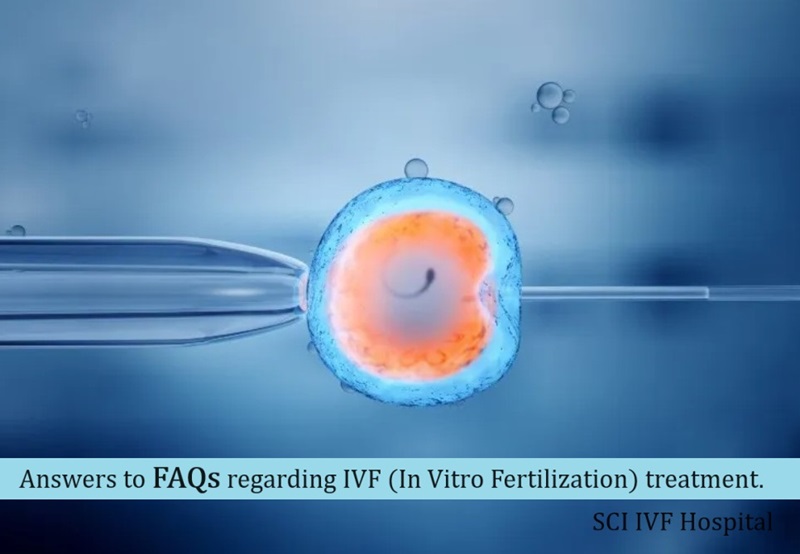
IVF FAQs
In Vitro Fertilization (IVF) serves as a transformative solution for couples grappling with natural conception challenges. This assisted reproductive technology encompasses crucial steps: ovarian stimulation, egg retrieval, laboratory fertilization, embryo culture, and transfer. Age emerges as a significant factor influencing success rates, with younger individuals experiencing higher probabilities of success.
IVF is recommended for diverse fertility challenges, including fallopian tube blockage, male factor infertility, and endometriosis. It is also an inclusive option for single individuals or same-sex couples aspiring to parenthood. In cases where a woman’s own eggs are not viable, alternatives such as donor eggs provide a viable solution.
Acknowledging potential risks is imperative. Multiple pregnancies, ovarian hyperstimulation syndrome (OHSS), and a slight increase in birth defect risks are associated with IVF. Success rates are intricately linked to age, overall health, and the specific cause of infertility. Individualized treatment plans significantly optimize success.
Insurance coverage for IVF varies, necessitating a thorough examination of specific plans and potential financial assistance programs. The utilization of frozen embryos in IVF procedures has shown comparable success rates to fresh cycles, enhancing flexibility and options for patients.
Addressing common questions:
- What is In Vitro Fertilization (IVF)?
IVF involves combining eggs and sperm in a laboratory, creating embryos transferred into the uterus for implantation—a widely used fertility treatment.
- How does age affect IVF success?
Age impacts success; younger women generally exhibit higher success rates due to better egg quality.
- What are the IVF process steps?
The process involves ovarian stimulation, egg retrieval, laboratory fertilization, embryo culture, and transfer, coordinated for successful pregnancy.
- Who is an Ideal Candidate for IVF?
Recommended for couples facing infertility due to various factors, including fallopian tube blockage, male factor infertility, and endometriosis.
- Are there risks to having a baby through IVF?
IVF carries risks, including multiple pregnancies, OHSS, and a slight increase in birth defect risks.
- What are the success rates for IVF, and what factors influence them?
Success rates vary based on age, overall health, and the cause of infertility. Individualized treatment plans optimize success.
- Does insurance cover IVF costs?
Insurance coverage varies; exploring specific plans and financial assistance options is essential.
- What are the chances of pregnancy with frozen embryos?
Success rates for frozen embryos are comparable to fresh cycles, with improved freezing and thawing processes.
- Options if a woman’s own eggs are not viable?
Donor eggs offer a higher chance of successful fertilization and implantation for women with diminished ovarian reserve.
- Alternatives to IVF?
Alternatives include intrauterine insemination (IUI), ovulation induction, and fertility medications, tailored to the underlying cause of infertility.
Conclusion: In conclusion, IVF has revolutionized fertility treatments, offering hope and possibilities for building families. Advancements and personalized treatment plans enhance success rates, emphasizing the need for open communication with healthcare providers. Seeking professional guidance is crucial for those navigating infertility, determining the most suitable path forward. Ongoing research and advancements in assisted reproductive technologies continue to offer new possibilities, increasing the chances of fulfilling the dream of parenthood.
